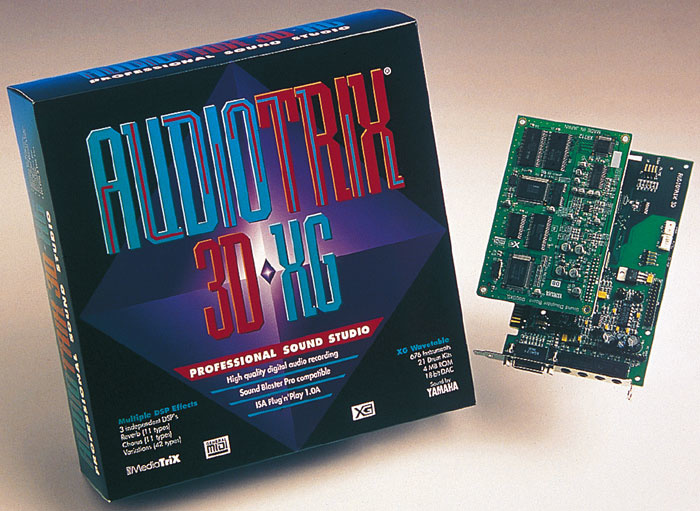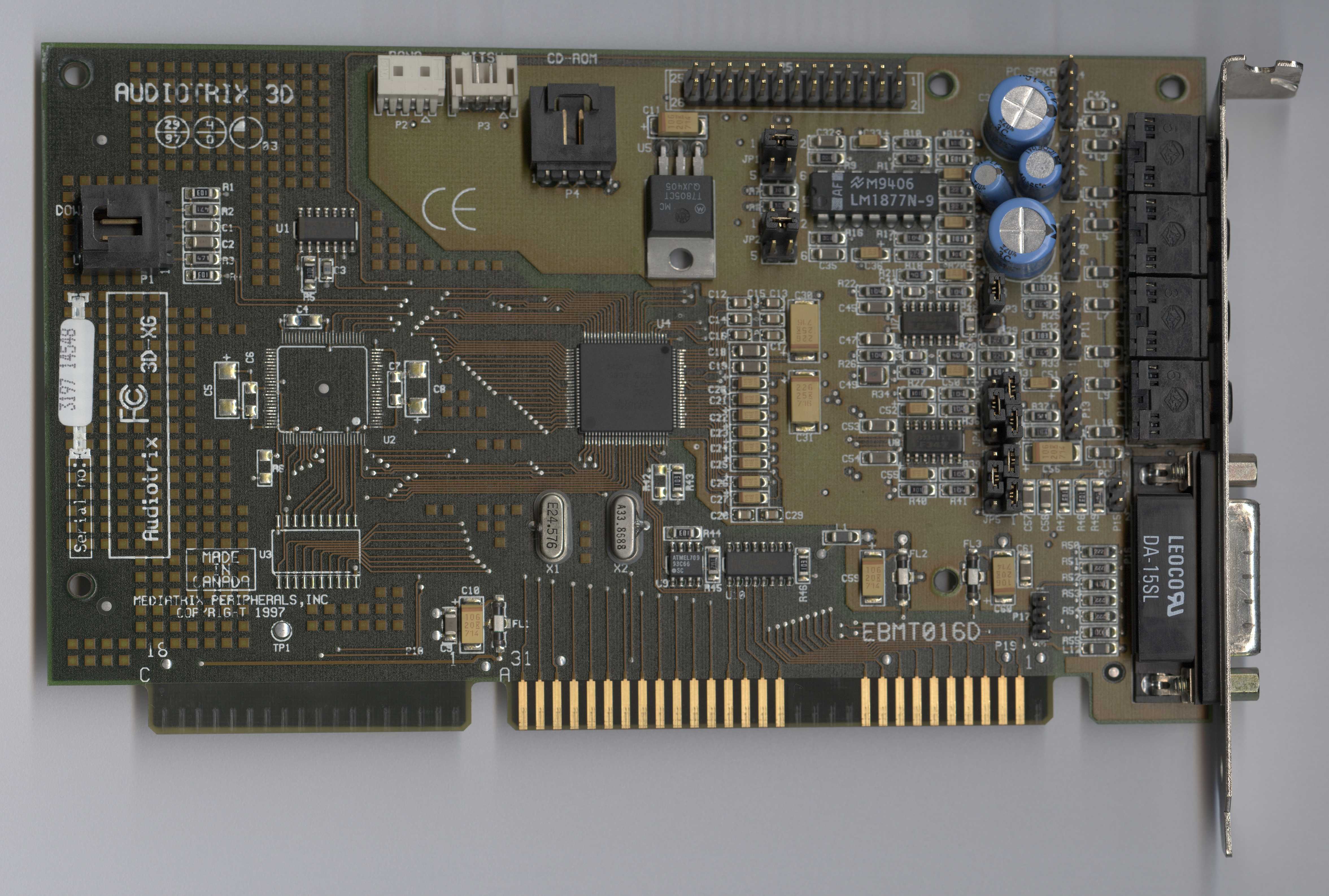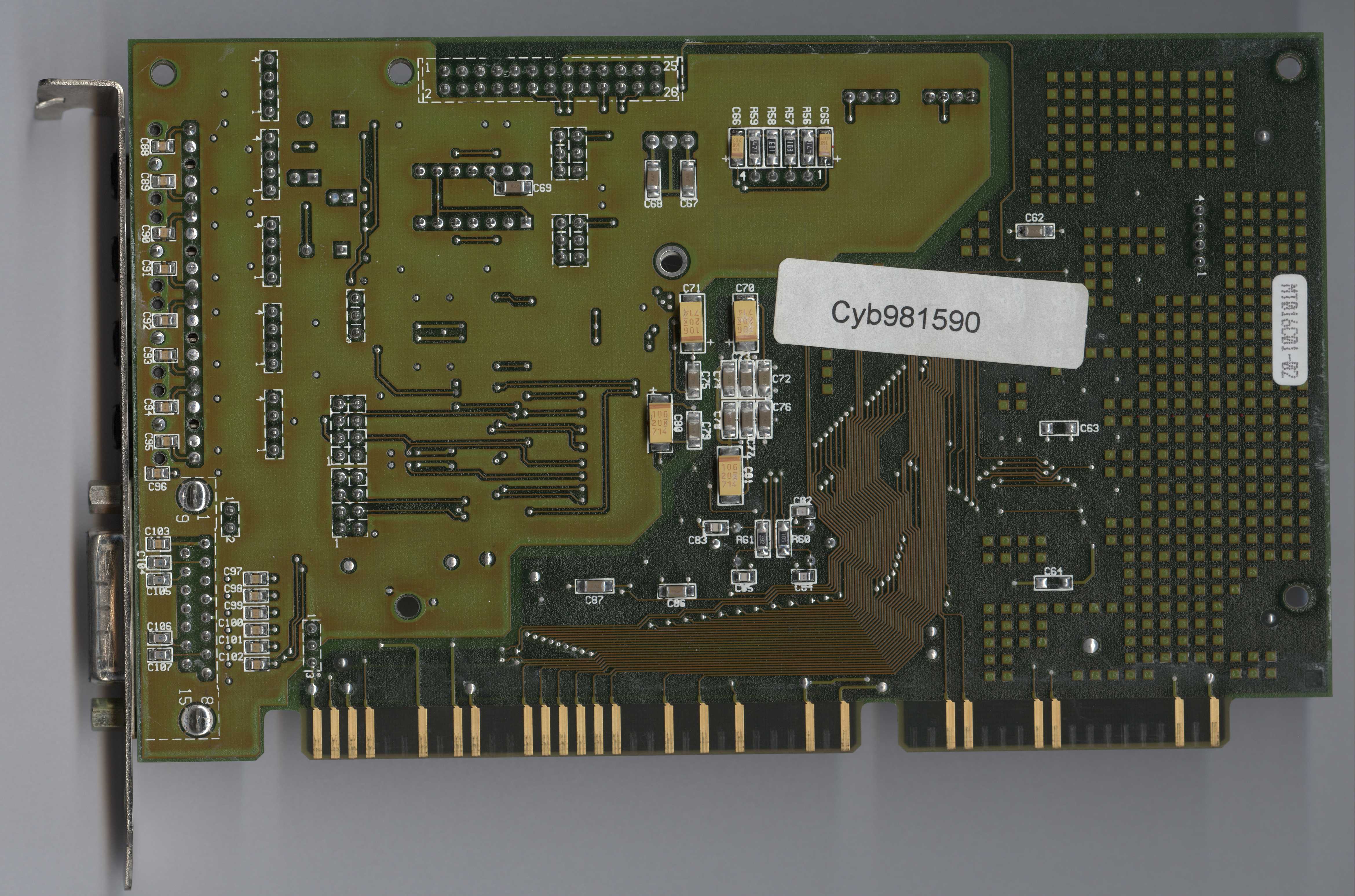AudioTriX Pro      
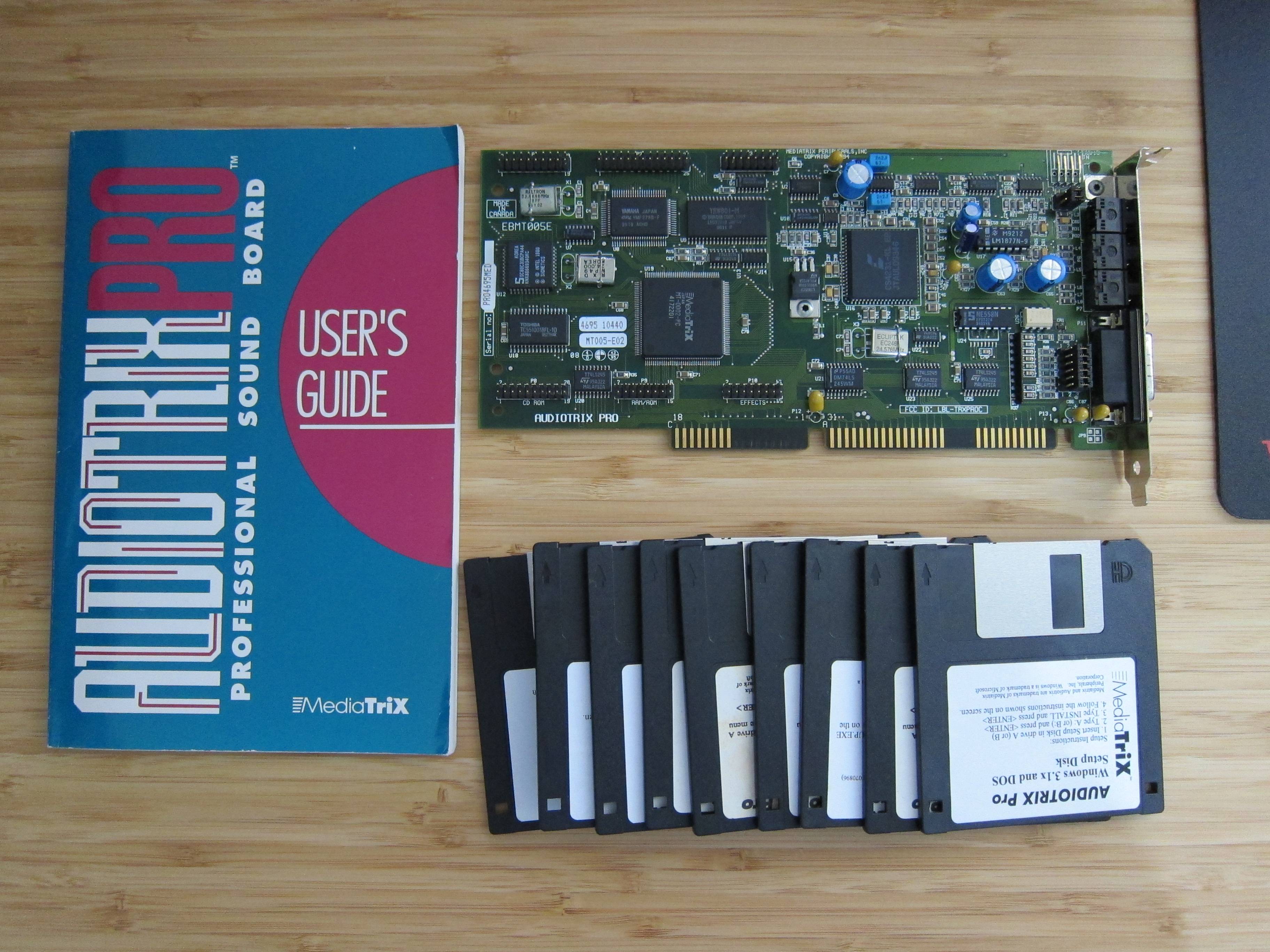 Launched: 1994 Launched: 1994
FM Synthesizer: Yamaha YMF278B (OPL4)
Audio Codec: Crystal CS4231A-KL
DAC: Yamaha YAC513
Bus: 16-bit ISA
Price When New: $325, then $299
Part #: EBMT005E / MT005-E004
The AudiTriX Pro is a Sound Blaster-compatible sound card released in 1994. Being an OPL4 card it is backward compatible with all OPL2- and OPL3-based cards, but adds 24-voice wavetable synthesis on top of standard 20-voice FM synthesis capabilities.
It has an onboard 2 MB ROM containing 128 melodic and 47 percussive General MIDI sounds, but can be expanded by a further 512 KB via the RAM expansion socket.
One key thing that set the AudiTriX Pro apart from its competition of 1994 was its sound quality. It was capable of enhanced full-duplex recording and playback (enhanced because you could have different record and playback rates) at up to 44.1 kHz sampling frequency. The card's overall noise at the audio out socket was -87 dB, which was pretty decent as a mid-level card.
Expansion was also top of the MediaTriX' agenda when they designed this card, with no less than three connectors: a SCSI module connector, an Effects Processor daughterboard connector (this $90 MSRP optional daughterboard provides echo, reverb, flange, distortion, panning and surround processing), and RAM expansion for up to 512 KB of samples to be loaded (a $135 optional board).
Another point to note about this card is its almost unique ability to send an ACK MIDI response when receiving MIDI messages. This means it's able to fool numerous games titles that demand "intelligent MPU-401 mode" into thinking that's what they're talking to!
Best OPL4 patch set. Solid Windows card. Solid SB/FM support. Low noise. Supports ADPCM. Very good one-card solution but a bit on the expensive side especially if you add the optional CD-ROM interface, RAM DB, Effects module or other options. SB-Pro support would help. 8 out of 10 for digital audio quality, 6.5 out of 10 for music quality.
PC Magazine from 28 March 1995 had this to say: "The Mediatrix Audiotrix Pro ($299 list, $225 street) from Mediatrix Periperhals provides a lot of bang for the buck. Above-average sound quality, a wealth of bundled software, and various upgrade options make the board easy to recommend. The package has some rough edges, but it will still satisfy MIDI lovers, game players, business users, and higher-end audio users and developers on a budget.
The Audiotrix Pro features Mediatrix's implementation of the Yamaha OPL4 chip set and supports SCSI CD-ROM drives and proprietary drives from Mitsumi, Panasonic, and Sony. Installation of the board was painless (both DOS and Windows installation utilities are included), and the card has no jumpers; IRQs and DMAs are both software-addressable.
The Audiotrix Pro performed well on our sound tests. The card's pre-amplifier is top-notch. Results on our Digital Recording tests were also excellent; its only flaw in a Channel Separation score of -67 dBr on the Preamplifier tests, which will make creation of a completely crisp stereo image difficult. MIDI lovers and game users will be impressed by the quality of the board's wavetable sound. Percussives are punchy and crisp, while keyboards are realistic and convincing. For even better sound quality, Mediatrix offers a $90 effects processor that adds SRS's three-dimensional sound system. You can also add an $85 RAM/ROM expansion board for storing customized wavetables."
Rich Heimlich said this of the AudioTriX Pro card: "Best OPL4 patch set. Solid Windows card. Solid SB/FM support. Low
noise. Supports ADPCM. Very good one-card solution but a bit on the
expensive side especially if you add the optional CD-ROM interface,
RAM DB, Effects module or other options. SB-Pro support would help.". He scored it 8.0 out of 10 for digital quality but only 6.5 out of 10 for music quality.
IMPORTANT: This card's MIDI/game port is wired differently to most Sound Blaster-compatible MIDI/game port cables. It is believed that the cable that was provided with the Audiotrix Pro had three tails - MIDI IN, OUT and THRU. Check this diagram for details of what pins provide the MIDI in/out signals for the MediaTriX cards. *For reference, Sound Blaster cards use pin 1 for TxD, pin 12 for Rxd and pin 4 for GND.
You can compare this card's audio output side-by-side to numerous other cards in my Sound Blaster CT2770 Retro Review!
Driver Disks (includes DOS, Windows 3.x, Windows NT 3.51, Windows NT4, and Windows 95)
Driver Disks (includes DOS, Windows 3.x, Windows NT 3.51, Windows NT4, and Windows 95)
User Manual
More Images
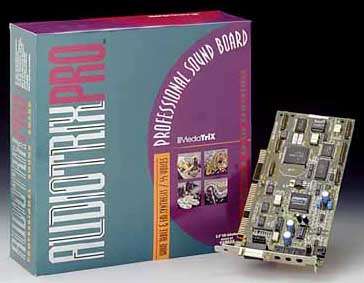
|


